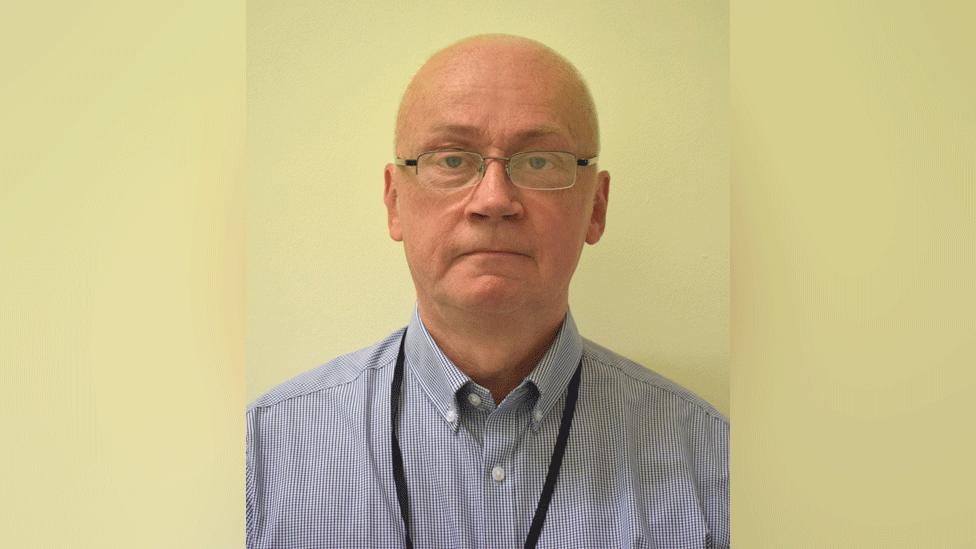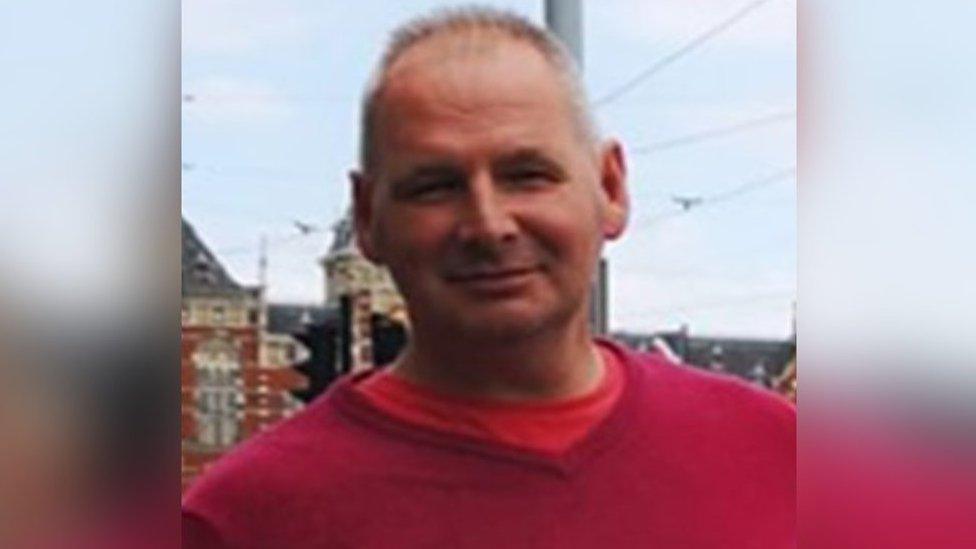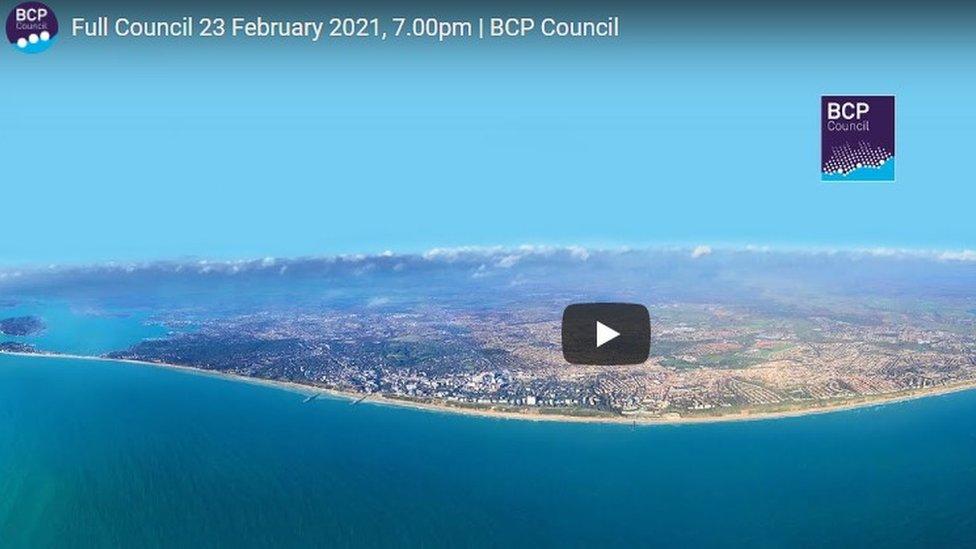Tendring councillor Peter Cawthron sanctioned for swearing at meeting
- Published

Peter Cawthron was heard to swear "probably in frustration" at the outcome of a vote by the full council, an inquiry said
A councillor who swore during a live broadcast of a council meeting and did not apologise has been sanctioned.
Peter Cawthron, who stands in Clacton-on-Sea in Essex, uttered the offensive word after a vote about public firework displays.
When another councillor complained, the UKIP councillor claimed the word was no longer an obscenity.
Tendring District Council, external's standards committee said he failed to comply with its code of conduct.
At a full council meeting on 24 November, he was heard to swear after the motion was carried, as reported by the Local Democracy Reporting Service.
During a later discussion, another councillor said he "clearly heard an obscenity", and asked for the recording to be investigated.
"I uttered what would have been an obscenity in the 1950s, 60s, 70s, which is no longer perceived by the majority of British people to be an obscenity, thank you," replied Mr Cawthorn.
'Highly offensive'
An independent investigation found Mr Cawthron had probably spoken in "frustration", and not at an individual, and had probably believed his microphone was muted.
"The word remains a swear word and an expression of profanity within the English language and is still regarded as highly offensive within many settings," a report stated.
"The correct course of action would have been for councillor Cawthron to apologise immediately - he failed to do that."
The standards committee heard he initially seemed willing to apologise but failed to do so, and had not responded when the council tried to contact him seven times.
The committee agreed on the sanctions of publishing its findings on the council's website, and reporting its findings to full council.
Mr Cawthron told the BBC the complaint against him by Labour councillors was "vexatious and politically motivated".
"I decided I was not going to apologise for an accident where I was overheard in my living room on an un-muted microphone.
"I stand by my assertion that [the swear word] is no longer the taboo it was in days past - it is now part of everyday speech for most English people."

Find BBC News: East of England on Facebook, external, Instagram, external and Twitter, external. If you have a story suggestion email eastofenglandnews@bbc.co.uk, external
Related topics
- Published19 October 2021

- Published25 February 2021

- Published17 February 2021
